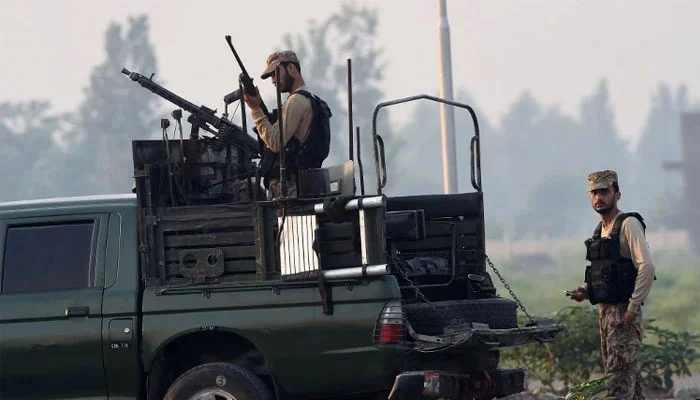US-Pakistan relations have entered an unexpected new phase, marked by growing cooperation and influence in Washington despite concerns in Islamabad after Donald Trump’s reelection. Once considered strained, the partnership now reflects a strategic shift that is reshaping South Asia’s political and economic landscape.
From Skepticism to Opportunity
During Trump’s first term, relations between Washington and Islamabad were rocky. Trump openly accused Pakistan of “deceit” and harboring terrorists while favoring New Delhi as a strategic partner. Pakistan categorically rejected these allegations but struggled to convince U.S. leadership of its counterterrorism efforts.
Fast forward to 2025, the dynamics look different. US-India relations are at their lowest point in decades, weighed down by trade disputes and personal frictions between Trump and Indian Prime Minister Narendra Modi. At the same time, Pakistan has quietly leveraged this opening to foster closer ties with the White House. Analysts now suggest that US-Pakistan relations are enjoying their strongest momentum in years.
Strengthening Military and Political Ties
One of the clearest signals of improving ties came with Chief of Army Staff (COAS) Field Marshal Asim Munir’s two visits to Washington within just two months in 2025. Such frequent engagement at the highest military level underscores how US-Pakistan relations are being prioritized.
Munir described his visits as “a sign of a new dimension” in bilateral cooperation. Weeks later, Trump extended an unusual invitation to Munir for a private lunch at the White House. Analysts view this as a tacit acknowledgment of the army chief’s growing influence in shaping Pakistan’s foreign policy.
This outreach reflects a broader U.S. recognition of Pakistan’s role as a stabilizing force in South Asia, particularly in counterterrorism and regional security matters.
Economic Shifts and Tariff Breakthroughs
Beyond security, economic considerations have also tilted in Pakistan’s favor. In recent months, Pakistan secured one of the lowest U.S. tariffs among major Asian economies at 19%. This was a remarkable achievement compared to the 29% initially threatened and the punitive 50% tariff imposed on India over its purchase of Russian oil.
For Pakistan, this tariff relief is a critical win. With exports to the U.S. accounting for nearly $6.5 billion in 2024 (about 5% of India’s U.S. trade volume), reduced tariffs could inject much-needed vitality into the fragile Pakistani economy.
Trump has also hinted at joint exploration of Pakistan’s vast oil reserves. Additionally, Pakistan has pitched cryptocurrency partnerships and rare mineral development ventures to attract American investment. These moves highlight the economic opportunities that could shape the next phase of US-Pakistan relations.
Counterterrorism Cooperation
Counterterrorism has long been at the core of US-Pakistan relations, and recent developments reinforce that trend. In April 2025, the U.S. formally designated the Balochistan Liberation Army (BLA) as a foreign terrorist organization, aligning with Islamabad’s stance.
The U.S. also pledged to deepen intelligence-sharing and operational cooperation with Pakistan in combating extremist threats. Senate Defence Committee former chairman Mushahid Hussain Syed described these steps as “more than we could ask for,” noting that Pakistan’s legitimate security concerns were being acknowledged and addressed at the highest levels.
Mediation in South Asia’s Flashpoints
Another striking development came when Trump claimed credit for brokering a ceasefire between India and Pakistan after one of their most severe military escalations in years. Islamabad not only acknowledged Washington’s role but also announced plans to nominate Trump for the Nobel Peace Prize.
While New Delhi disputed the claim, this mediation highlighted the renewed relevance of US-Pakistan relations. The White House noted that Trump leaned on personal ties with both countries to prevent a conflict that could have spiraled into a nuclear confrontation.
This success has strengthened Pakistan’s belief that Washington, not New Delhi, now values its role in maintaining stability in the region.
Risks and Future Outlook
Despite the positive momentum, challenges remain. Pakistan’s fragile economy, security risks, and heavy reliance on foreign aid could weaken its position. Moreover, Trump’s unpredictable political style means that the trajectory of US-Pakistan relations could shift quickly depending on global events.
Still, the recent diplomatic, military, and economic breakthroughs point toward a partnership with renewed potential. As Pakistan continues to navigate its regional challenges, closer ties with Washington provide both legitimacy and leverage.
The transformation of US-Pakistan relations under Trump’s presidency has surprised many observers. From tariff concessions and counterterrorism cooperation to high-level military engagements and regional mediation, Islamabad has managed to reposition itself as a valuable partner in Washington’s global strategy.
While the economic stakes remain modest compared to U.S.-India trade, the political symbolism is powerful. For Pakistan, this moment marks an opportunity to preserve and advance its national interests on the world stage. For Washington, it highlights the enduring importance of Pakistan as both a security partner and a regional stabilizer.



